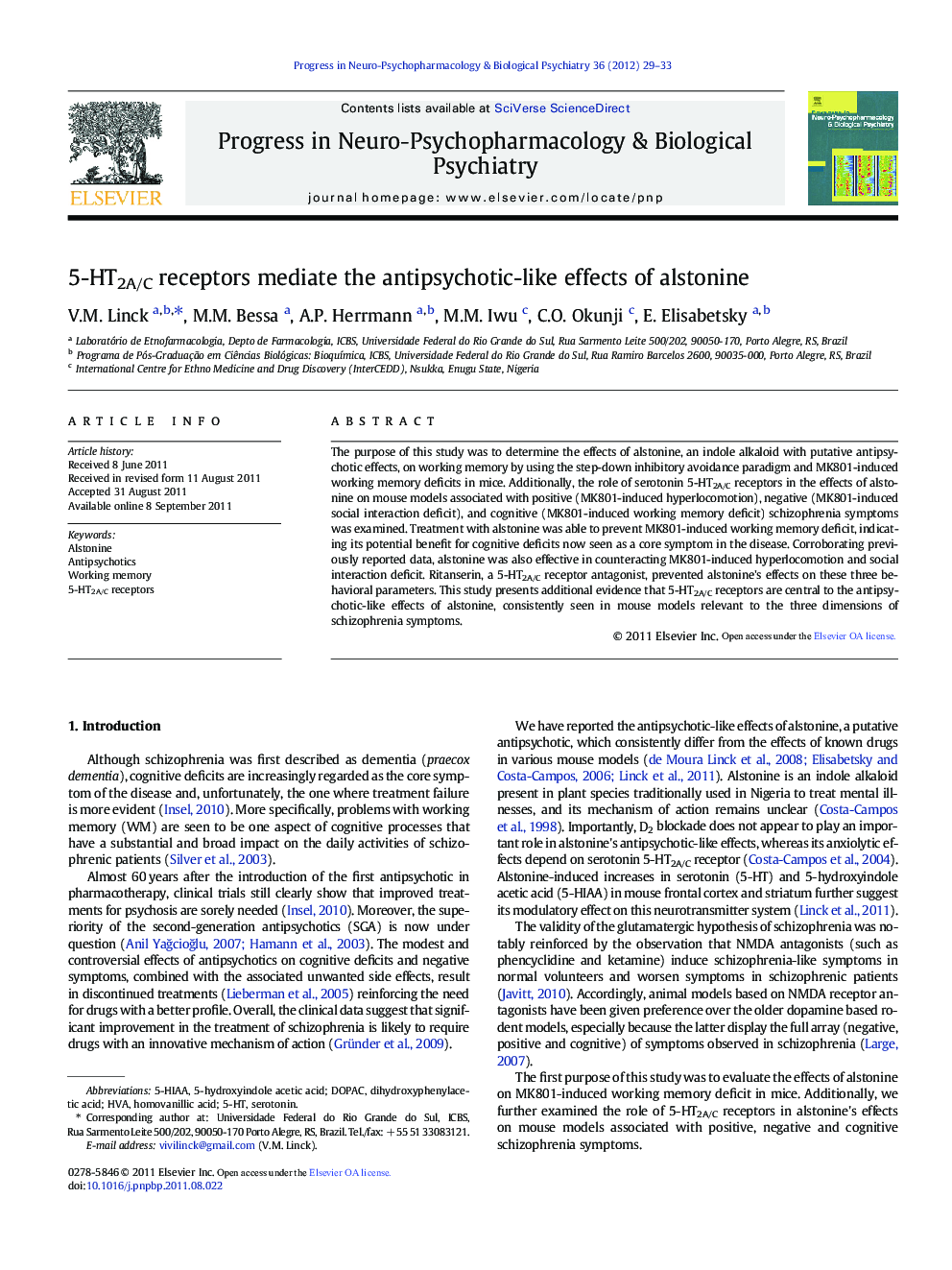| Article ID | Journal | Published Year | Pages | File Type |
|---|---|---|---|---|
| 5845396 | Progress in Neuro-Psychopharmacology and Biological Psychiatry | 2012 | 5 Pages |
The purpose of this study was to determine the effects of alstonine, an indole alkaloid with putative antipsychotic effects, on working memory by using the step-down inhibitory avoidance paradigm and MK801-induced working memory deficits in mice. Additionally, the role of serotonin 5-HT2A/C receptors in the effects of alstonine on mouse models associated with positive (MK801-induced hyperlocomotion), negative (MK801-induced social interaction deficit), and cognitive (MK801-induced working memory deficit) schizophrenia symptoms was examined. Treatment with alstonine was able to prevent MK801-induced working memory deficit, indicating its potential benefit for cognitive deficits now seen as a core symptom in the disease. Corroborating previously reported data, alstonine was also effective in counteracting MK801-induced hyperlocomotion and social interaction deficit. Ritanserin, a 5-HT2A/C receptor antagonist, prevented alstonine's effects on these three behavioral parameters. This study presents additional evidence that 5-HT2A/C receptors are central to the antipsychotic-like effects of alstonine, consistently seen in mouse models relevant to the three dimensions of schizophrenia symptoms.
⺠Alstonine is a putative atypical antipsychotic. ⺠The participation of 5HT2A/C receptors on alstonine effects was examined. ⺠Mouse models of positive, negative and cognitive symptoms were used. ⺠Ritanserin abolished alstonine effects. ⺠5HT2A/C receptors mediate alstonine antipsychotic-like effects.
